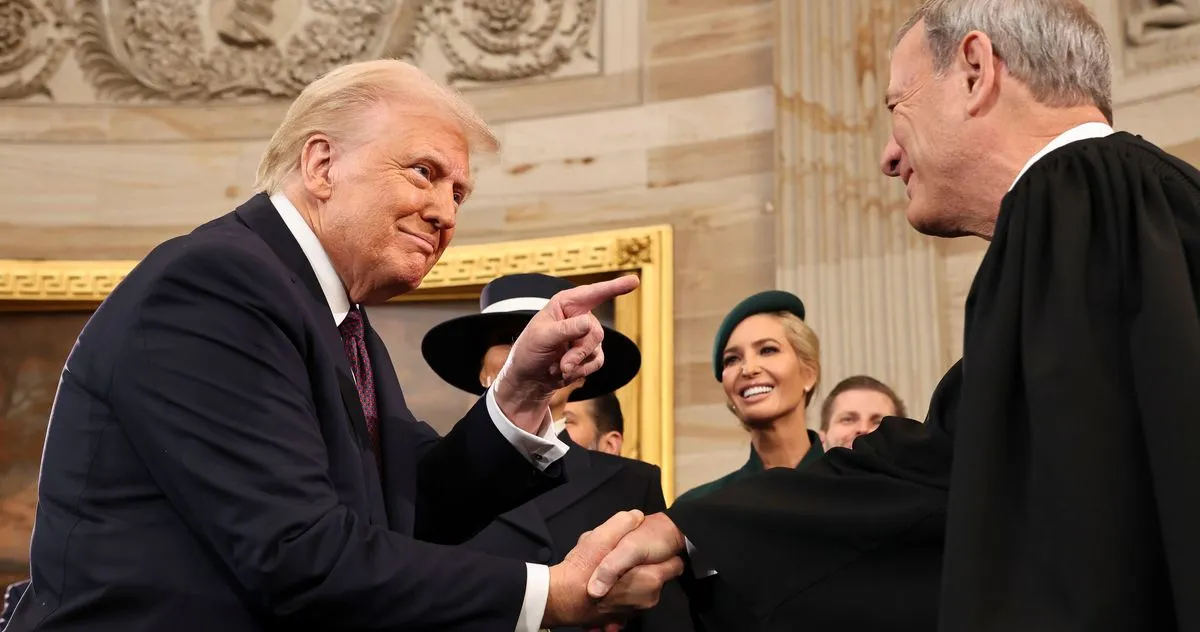
The initial days of the second Trump administration have been characterized by a whirlwind of executive actions aimed at radically transforming the federal government. Major changes in the structure, size, and management of federal agencies have been pursued through various controversial measures. These range from presidential executive orders to a funding “freeze” imposed by the Office of Management and Budget. Additionally, high-speed raids on executive-branch data systems and funding streams have been executed by Elon Musk’s pirate DOGE operation, now legitimized by a Trump executive order to significantly reduce the federal workforce.
The aggressive approach has led to numerous legal challenges from advocacy groups, nonprofits funded by federal agencies, and state and local governments that manage federal programs. Federal judges have started to put these unusual assertions of executive authority on hold for review. Notably, Rhode Island-based district court Judge John McConnell has suggested halting the entire agenda of executive power plays.
There is a growing fear that the administration might defy the judicial branch, potentially leading to a constitutional crisis. This concern stems partly from Vice-President J.D. Vance's comments about the powerlessness of federal judges to stop “legitimate” uses of executive authority. Such a stance may find support among MAGA activists, reminiscent of the January 6 Capitol events. However, the Trump administration's Justice Department lawyers are currently signaling compliance with judicial orders, though sometimes slowly and partially. They are appealing Judge McConnell’s ruling to the First Circuit Court of Appeals instead of ignoring it.
The administration is expected to take its claims of vast executive powers to the U.S. Supreme Court, which has a Trump-friendly conservative majority. Two main arguments for expanded presidential powers are being advanced. The first is the unitary executive theory, which supports Trump’s claim that he can fire federal employees at will and redirect their actions. Stemming from a dissent by Justice Antonin Scalia in a 1988 Supreme Court case, the theory posits that Article II’s statement that “executive power shall be vested in a President” means all executive powers should be controlled by the president.
Trump’s lawyers will likely urge the Court to recognize an expanded doctrine of the unitary executive, granting full authority over all federal executive-branch personnel, including those in independent agencies like the Federal Trade Commission or the Federal Reserve System, regardless of congressional statutes.
The Supreme Court's decision remains uncertain. They could limit full presidential powers over executive-branch employees to “Officers of the United States,” allowing congressional civil-service protections for other bureaucrats. Alternatively, they might allow the White House more control over federal employees not performing congressionally mandated functions or working in areas closely associated with presidential powers, like foreign affairs. The Court might also affirm Trump’s complete control over the executive branch.
A closely related legal theory that Team Trump wants to pursue involves the president's power to impound congressionally appropriated funds. This idea, favored by OMB director Russell Vought, suggests that the president’s power to “execute” laws includes deciding on the necessary expenditures. He argues that congressional appropriations serve as a “ceiling” and not a “floor” on spending, challenging laws like the Impoundment Control Act of 1974.
This theory justifies the OMB “funding freeze” and potentially points to a federal budget dictated by the Trump administration, defying Congress’s Article I powers to manage national finances. Overturning this congressional prerogative, repeatedly confirmed by the Supreme Court, would signal a MAGA Supreme Court, though this seems unlikely now. However, Trump’s lawyers may seek a partial victory granting funding control for functions central to executive authority, like foreign affairs or national defense.
The public, generally not well-versed in constitutional law, demonstrated through Trump’s election victory a lack of concern over his assertions of total power. As litigation continues, Trump and his allies, including congressional Republicans, are likely to promote the benefits of strong presidential control over bureaucrats and wasteful spending. Meanwhile, opponents will use legal arguments and public concern over federal program impacts to challenge these moves. The journey to the Supreme Court promises to be tumultuous.